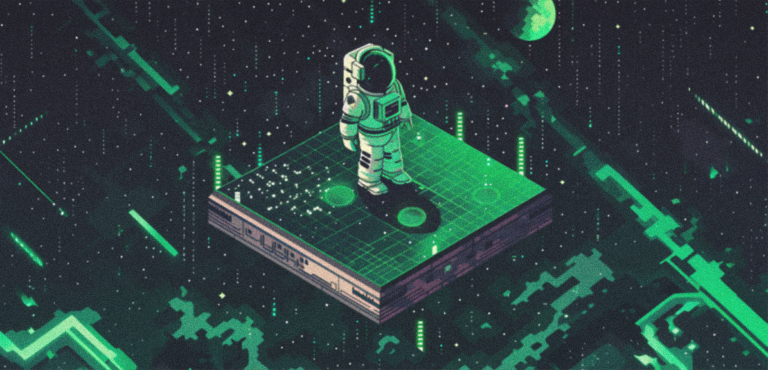
Datafication: Transformation of Our World into Measurable Data
In an increasingly digital world, a new phenomenon is reshaping our reality: datafication. It’s the process of transforming human experiences, social interactions, and even physical objects into quantifiable data. This data, once analysed, holds immense power to shape our lives – from optimising commutes to personalising online experiences and accelerating scientific discovery.
Imagine a vast tapestry. Traditionally, its threads represented qualitative aspects – experiences, emotions, and social interactions. Datafication introduces a new set of threads: measurable data points. By analysing these points, we gain a deeper understanding of the underlying patterns and trends that govern our world.
The benefits of datafication: efficiency, personalisation, and progress
Datafication offers three key benefits: enhanced efficiency, personalised experiences, and advancements across industries. Take traffic management, for example. By analysing traffic flow data from sensors and GPS devices, authorities can dynamically adjust traffic light timings and deploy emergency services more effectively, reducing congestion and saving time.
Datafication has ushered in the era of personalisation. Every online interaction, from browsing habits to shopping preferences, leaves a data trail. Companies analyse this data to understand our preferences and desires, tailoring offerings and marketing strategies to each individual. Think of movie recommendations on Netflix or targeted advertisements on social media. While some may find this intrusive, personalisation can also enhance our experiences, suggesting restaurants based on dietary preferences or curating news feeds to our interests.
Datafication isn’t just about streamlining daily life; it’s fuelling advancements in various fields. In healthcare, wearable devices generate a constant stream of health data, allowing doctors to monitor patients remotely and detect potential health issues earlier. This data is also crucial for medical research, helping scientists develop new diagnostic tools and treatment strategies. Similarly, in astrophysics, datafication is revolutionising our understanding of the universe. Giant telescopes are collecting massive amounts of data on celestial objects, allowing astronomers to peer deeper into space and unravel cosmic mysteries. Datafication is providing crucial insights in climate change research, helping us develop effective mitigation strategies.
The challenges of datafication: privacy and bias
While datafication offers undeniable benefits, it’s important to acknowledge the challenges. As we generate more data, the risk of misuse or falling into the wrong hands increases. Imagine a world where employers access your health data for job applications or insurance companies adjust premiums based on online activity. Such scenarios raise ethical concerns and necessitate robust data protection regulations.
Datafication algorithms are only as good as the data they are trained on. Biased data can lead to biased algorithms that perpetuate societal inequalities. Imagine a facial recognition system trained on a predominantly white dataset, leading to higher error rates when identifying people of colour. Addressing these biases requires careful data curation and the development of inclusive algorithms.
The tools and platforms of datafication: building the architecture
Datafication isn’t magic. It relies on a vast ecosystem of tools and platforms that collect, store, analyse, and visualise data. Here’s a glimpse into some of the key players:
- Sensors: These are the eyes and ears of datafication, embedded in everything from smartphones and smartwatches to traffic lights and industrial machinery. Sensors collect real-time data on temperature, location, movement, and various other parameters.
- Internet of Things (IoT): This network of interconnected devices empowers seamless data collection. Imagine a refrigerator automatically adjusting settings based on internal temperature data or a fitness tracker continuously monitoring your heart rate. The IoT is rapidly expanding, creating a universe of data-generating devices.
- Data collection platforms: Once collected, data needs to be stored and managed. Platforms like Google Cloud Platform, Amazon Web Services, and Microsoft Azure offer robust infrastructure for data storage, retrieval, and organisation.
- Data analytics tools: Extracting meaningful insights from raw data requires powerful tools. Platforms like Tableau, Power BI, and Qlik offer user-friendly interfaces for data analysis, allowing users to create dashboards, visualise trends, and identify patterns.
- Artificial Intelligence (AI) and Machine Learning (ML): These advanced technologies play a crucial role in datafication. AI algorithms can analyse massive datasets, identify complex patterns, and even make predictions. For instance, recommendation engines on e-commerce platforms use AI to personalise product suggestions based on your browsing history.
Datafication in action: real-world examples
Datafication is making its mark across numerous sectors. Here are a few specific examples:
Healthcare: Wearable devices track health metrics, allowing for remote patient monitoring and early detection of potential health issues. Data analysis is also used to develop targeted treatment plans and conduct clinical trials more efficiently.
Subscribe to our bi-weekly newsletter
Get the latest trends, insights, and strategies delivered straight to your inbox.
Marketing: Companies use customer data to personalise marketing campaigns, deliver targeted advertising, and understand customer preferences. This data-driven approach allows for more effective marketing strategies and a more relevant customer experience.
Finance: Financial institutions leverage data to assess creditworthiness, detect fraudulent transactions, and offer personalised financial products. Algorithmic trading uses data analysis to make investment decisions faster and more efficiently.
As technology advances, datafication will become even more ingrained in our lives. The future holds exciting possibilities: edge computing will allow for real-time decision-making by processing data closer to its source (think smart devices). New AI and machine learning techniques will unlock deeper data insights, leading to even more powerful applications. Finally, data democratization – making data accessible to a wider audience – will empower individuals and businesses to leverage its power for innovation. These trends promise a future where data plays an even greater role in shaping our world.
Distilled
Datafication is transforming our world, offering immense potential for progress and improvement. By understanding its benefits and challenges, and by employing data responsibly and ethically, we can ensure that datafication empowers us to build a better future for all